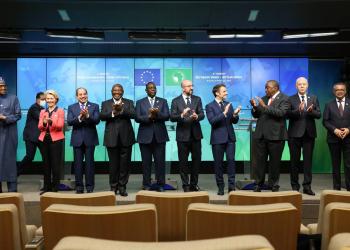What does a meaningful partnership look like? BIC Brussels hosts discussions on Africa-Europe relations
On June 23 and 24, 2022, the Baha’i International Community (BIC) Brussels Office hosted conversations on how Africa and Europe can build a meaningful partnership and on the nature of such a relationship. The discussions were part of a series of meetings the BIC is holding as a follow up to this year’s African Union and European Union Summit which took place in February and for which the BIC released a statement. The statement highlighted that “a flourishing partnership between the two continents can be founded only on the fundamental principle that humanity is one. This implies that the progress, prosperity, and well-being of one continent is inextricably bound up with the welfare of the other, indeed with the welfare of humanity as a whole”.
“Building a meaningful partnership requires a willingness to learn, in which both sides are seen as sources of equally valuable knowledge in tackling shared challenges,” said Melania Mora from the BIC Brussels Office, ahead of the meetings.
During the first meeting held with civil society organizations, one participant remarked that, for African and European policymakers and civil society to learn from each other on an equal footing, forums for dialogue need to be created beyond one-off events in formal or even rigid settings. This shows a need to change the very format of engagement between the two continents, others said.
The BIC was later joined by other religious actors and faith-based communities to explore the role of faith in building a meaningful partnership. “Religious communities, as networks of faith, trust and values, are deeply rooted in local realities and close to people’s needs,” said Marek Misak, an external affairs policy adviser at the European Union's Commission of the Bishops’ Conferences. “The Africa-Europe partnership would greatly benefit from reaching out systematically to religious and faith-based actors and tapping into the potential of engaging with them in areas, such as access to basic social services, education, healthcare, as well as peace-building and reconciliation.”
“What has stood out during both meetings is the fact that contemporary governance structures were designed at a time when the supremacy of one part of the world over another was considered fact,” added Ms. Mora. “Every continent needs to be able to participate in the design of our global order. One of the greatest challenges that stands before humanity is to figure out what such a collective process looks like.”
